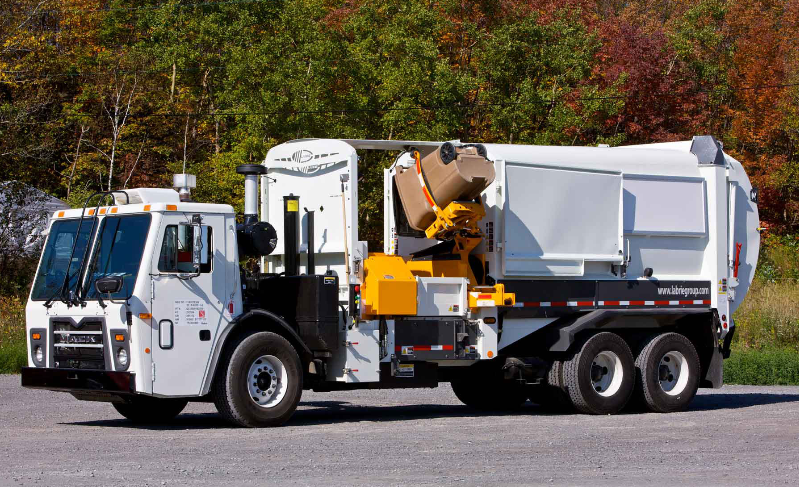THUNDER BAY – The City of Thunder Bay is set to take a key step toward implementing a new composting program, as city council considers a $5-million contract for eight new waste collection trucks.
The new trucks, replacing models that have been in service for over a decade, will come equipped with split-body compartments to accept organic waste as well as garbage, and with “auto-assist” arms to help lift new standardized waste bins that will be provided by the city.
The purchase will enable the upcoming launch of a green bin program, meeting a provincial requirement for the city to divert 50 per cent of residential organic waste from landfills by 2025.
To reach the target, the city will add weekly green bin pickup, and scale back garbage collection to every second week.
Food and other organics make up roughly half of what’s currently thrown in the trash, the city estimates.
The green bin program will begin sometime in 2025, though an exact date has not yet been set.
It’s projected to cut Thunder Bay’s greenhouse gas emissions by the equivalent of 5,380 tons of CO2 a year – around 5.7 per cent of the community's waste-related GHG emissions, and 0.4 per cent of its total emissions.
The auto-cart system will use mechanical arms to assist with pickup, a move expected to trim costs, with only one operator required instead of two, and reduce physical strain on waste collection workers.
Green bin service will start for single-family homes sometime in 2025, with apartments and other multi-unit buildings added the following year. The city hasn't yet committed to provide the service for businesses.
“Typically things are a little bit more challenging when it comes to multi-residential and delivering organics [collection] specifically,” said Jason Sherband, manager of solid waste and recycling services.
“Once that is complete, we start to have a conversation about the IC&I [institutional, commercial and industrial] sector, and what it may look to collect organics in auto-cart with small business.”
Sherband called the green bin program a big lift for the city, but expressed confidence it’s on track to meet the 2025 deadline – and that residents will appreciate the new service.
“This is what I would call a very significant change in terms of how waste management services will be delivered in the community, so there’s a lot of stuff going on behind the scenes,” he said. “Things can always go smoother, but all in all, we feel pretty good [about] where we’re at now.”
“We’re excited in terms of what this will look like in the end, and I think people will be pretty happy with what the system will look like.”
One challenge in making the transition is supply chain delays on truck orders – an order for two of the new trucks placed in 2021 still hasn’t arrived.
“Supply chain issues, as we know, are affecting everything, [and] waste collection vehicles are no different,” said Sherband. “But we are hearing that hopefully with this order, we won’t have the same issue.”
“Would I like them here sooner? Yes. But as I sit here today, I’m confident that they’ll be here in time to roll this out.”
On Monday, city council will consider a recommendation to award a $5.1-million contract for the eight trucks to Winnipeg-based FST Canada. The net cost to the city will be closer to $4.6 million after a municipal HST rebate.
There is sufficient room in the city’s 2023 fleet services budget to cover that cost, staff report.
FST was the sole bidder on the contract. In a report, administration said the company’s bid was competitive and “accurately reflects anticipated market pricing.”
The report also states staff explored the possibility of purchasing electric trucks, but recommend against the move.
While early electric versions are on the market, staff reported they had found no Canadian municipalities that had purchased them, citing concerns over battery capacity and heavier chassis that would reduce load capacity.
“Testing shows that in colder weather, heating the cabs is an issue and the batteries tend to lose charge to the point where the truck cannot complete a full shift on the road without having to return to the garage to be recharged for several hours,” the report states.
The next major step in preparing for the green bin transition is to secure an aerobic processing facility for organic waste. The city is expected to launch a procurement process for the facility later this fall.
